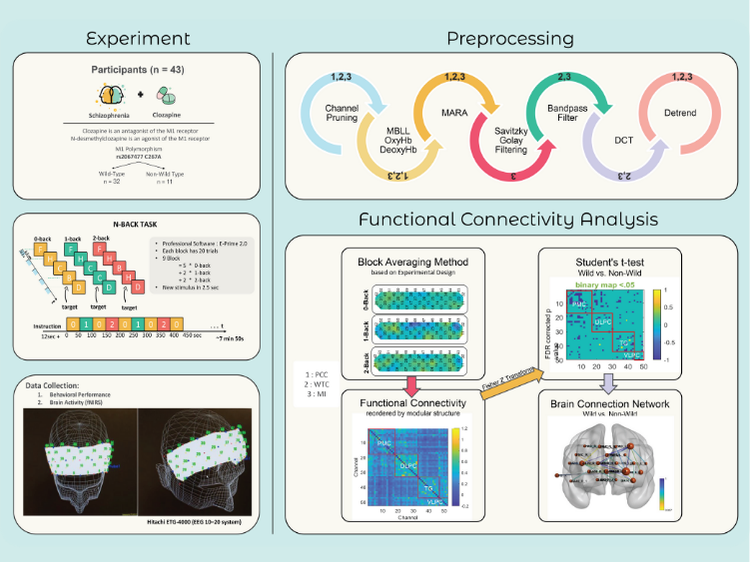Ph.D. Candidate: Ece Çağlayan
Program: Medical Informatics
Date: 10.01.2025 / 10:00
Place: A-212
Abstract: This study explores the impact of clozapine, an atypical antipsychotic, on cognitive function and brain connectivity in 43 schizophrenia patients, focusing on the M1 muscarinic receptor and its rs2067477 polymorphism. Building on Kır et al.'s (2023) work, cognitive function during clozapine treatment was assessed using the N-back working memory task. Functional near-infrared spectroscopy (fNIRS) was employed to investigate brain connectivity based on the M1 receptor polymorphism. While earlier findings showed no direct effect of the polymorphism on N-back task performance, significant differences in cortical activity were observed in regions associated with working memory. The current study additionally explores these differences in functional connectivity patterns, using three connectivity measures: Pearson Correlation Coefficient (PCC), Wavelet Transform Coherence (WTC), and Mutual Information (MI). Results showed that wild-type subjects exhibited higher activation in task-related cortical areas such as the prefrontal and premotor cortices, but lower functional connectivity in the frontotemporal network compared to non-wild-types. These findings suggest that genetic variations may influence neural responses to clozapine, with wild-type individuals employing more efficient neural strategies, while non-wild-type individuals rely on broader, less efficient compensatory mechanisms to maintain cognitive performance. This study emphasizes the complex relationship between the M1 receptor polymorphism, brain connectivity, and cognitive function, providing important information for personalized treatment approaches in schizophrenia.
